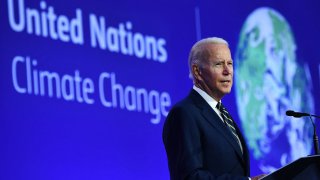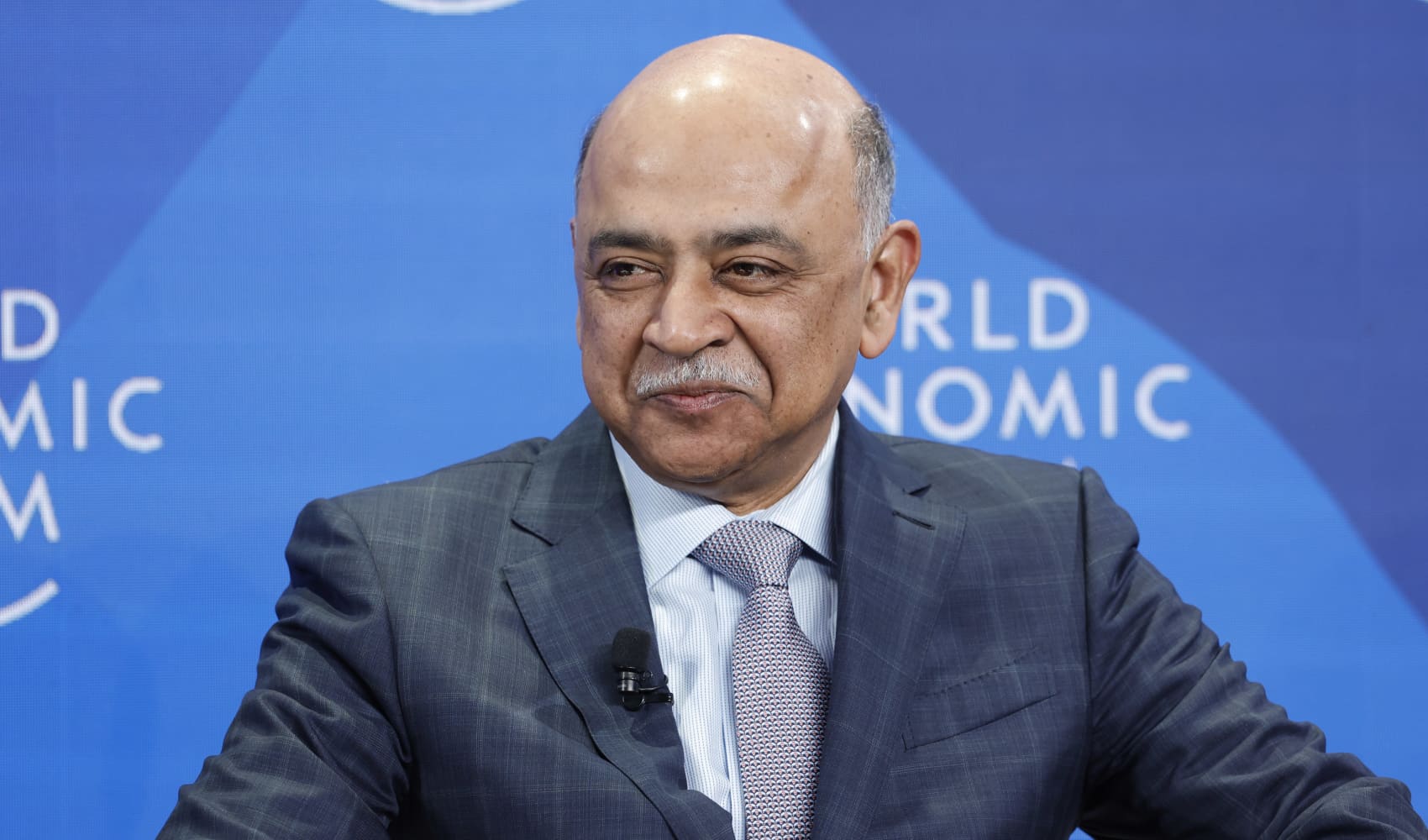
- "Right now, we're still falling short. There's no more time to hang back or sit on the fence or argue amongst ourselves," Biden said on Monday.
- His comments came as he addressed assembled delegates in Glasgow, Scotland.
- The U.K. is hosting U.N.-brokered climate talks from Sunday through to Nov. 12. The meeting is widely regarded as a make-or-break chance to prevent the worst of what the climate emergency could bring.
GLASGOW, Scotland — President Joe Biden called on world leaders to meet the moment at the COP26 climate summit, warning no country can escape what is to come if policymakers fail to seize this opportunity.
"Right now, we're still falling short. There's no more time to hang back or sit on the fence or argue amongst ourselves," Biden said on Monday. His comments came as he addressed assembled delegates in Glasgow, Scotland.
Get DFW local news, weather forecasts and entertainment stories to your inbox. Sign up for NBC DFW newsletters.
"This is the challenge of our collective lifetimes, the existential threat to human existence as we know it and every day we delay, the cost of inaction increases. So, let this be the moment when we answer history's call here in Glasgow. Let this be the start of a decade of transformative action," he added.
The U.K. is hosting U.N.-brokered climate talks from Sunday through to Nov. 12. The meeting is widely regarded as a make-or-break chance to prevent the worst of what the climate emergency could bring.
Biden said the U.S. was committed to reducing greenhouse gas emissions by 50% to 52% by 2030 when compared to 2005 levels.
Money Report
This was designed "to demonstrate to the world the United States is not only back at the table, but hopefully leading by the power of our example," Biden said. "I know it hasn't been the case and that's why my administration is working overtime to show that our climate commitment is action, not words."
The COP26 summit, delayed a year by the coronavirus pandemic, comes six years after the landmark Paris Agreement was signed by nearly 200 countries to limit rising global temperatures to 2 degrees Celsius above pre-industrial levels and to "pursue efforts" to cap heating to 1.5 degrees Celsius.
To have any chance of capping global heating to 1.5 degrees Celsius, the world needs to almost halve greenhouse gas emissions in the next 8 years and reach net-zero emissions by 2050.
Climate scientists have repeatedly stressed that the best weapon to tackle rising global temperatures is to cut greenhouse gas emissions — fast.
Underwhelming G-20 summit
Biden's arrival in Scotland's largest city comes shortly after leaders of the world's 20 largest economies appeared to fall short of meaningful climate pledges in Rome, Italy, over the weekend.
The G-20 summit resulted in countries agreeing to pursue "meaningful and effective" action to cap global heating to 1.5 degrees Celsius, a threshold that is seen as critically important to avoid disaster.
However, the joint communique offered few concrete actions, with no explicit commitment to net-zero carbon emissions by 2050.
It means policymakers now face an uphill battle to meet the moment at COP26.
Biden said on Sunday that he shared the disappointment of campaigners and activists after an underwhelming G-20 summit. The U.S. president accused China and Russia of failing to "show up" at the talks, before adding "more has to be done."
China and Russia have committed to reaching net-zero emissions by 2060, a decade later than many major economies.
The U.S. domestic climate agenda has also come under intense scrutiny in recent weeks, amid a barrage of criticism that the president's actions have yet to match his repeated assertion the climate crisis constitutes an "existential threat."
Biden took the world's biggest economy and second-biggest emitter back into the Paris Agreement in one of the first acts of his administration, but he faces substantial challenges to overcome those skeptical of America's climate leadership in Scotland.
"For those who have eyes to see, for those who have ears to listen and for those who have a heart to feel, 1.5 is what we need to survive," Mia Mottley, prime minister of Barbados, said at COP26 on Monday.
She added that 2 degrees of heating "is a death sentence for the people of Antigua and Barbuda, for the people of the Maldives, for the people of the Dominica and Fiji, for the people of Kenya and Mozambique, and yes, for the people of Samoa and Barbados."
"We do not want that dreaded death sentence and we have come here today to say: Try harder."






